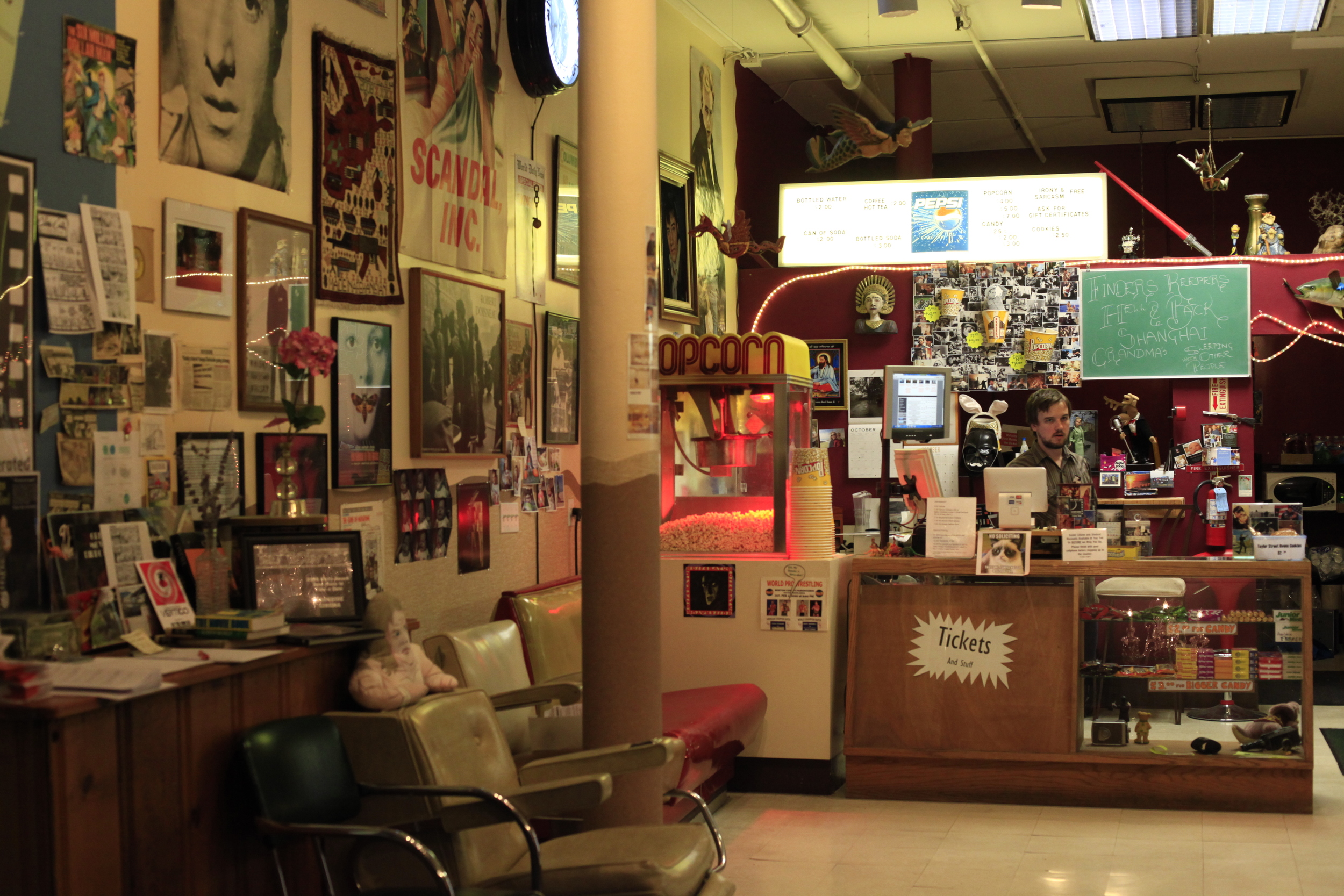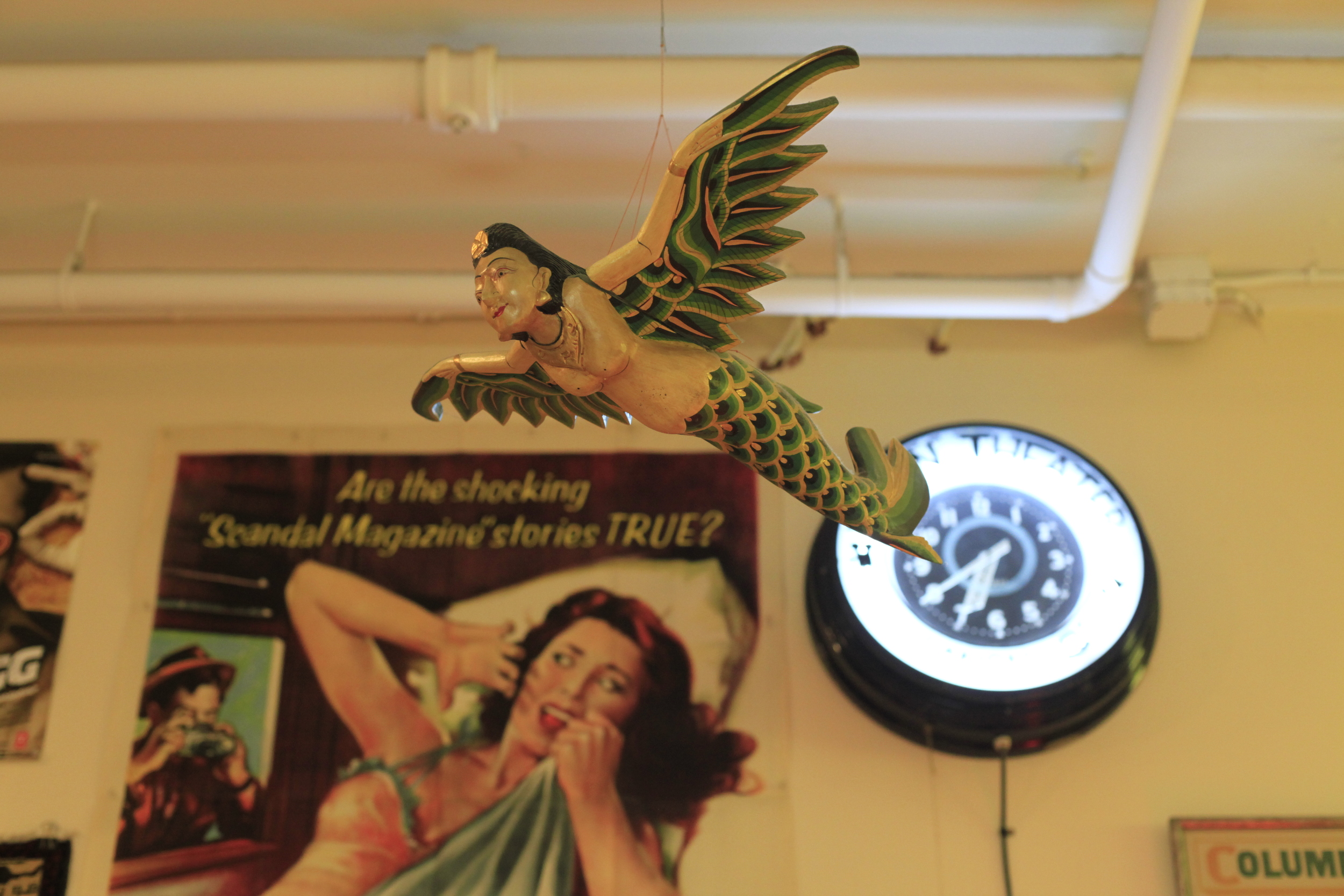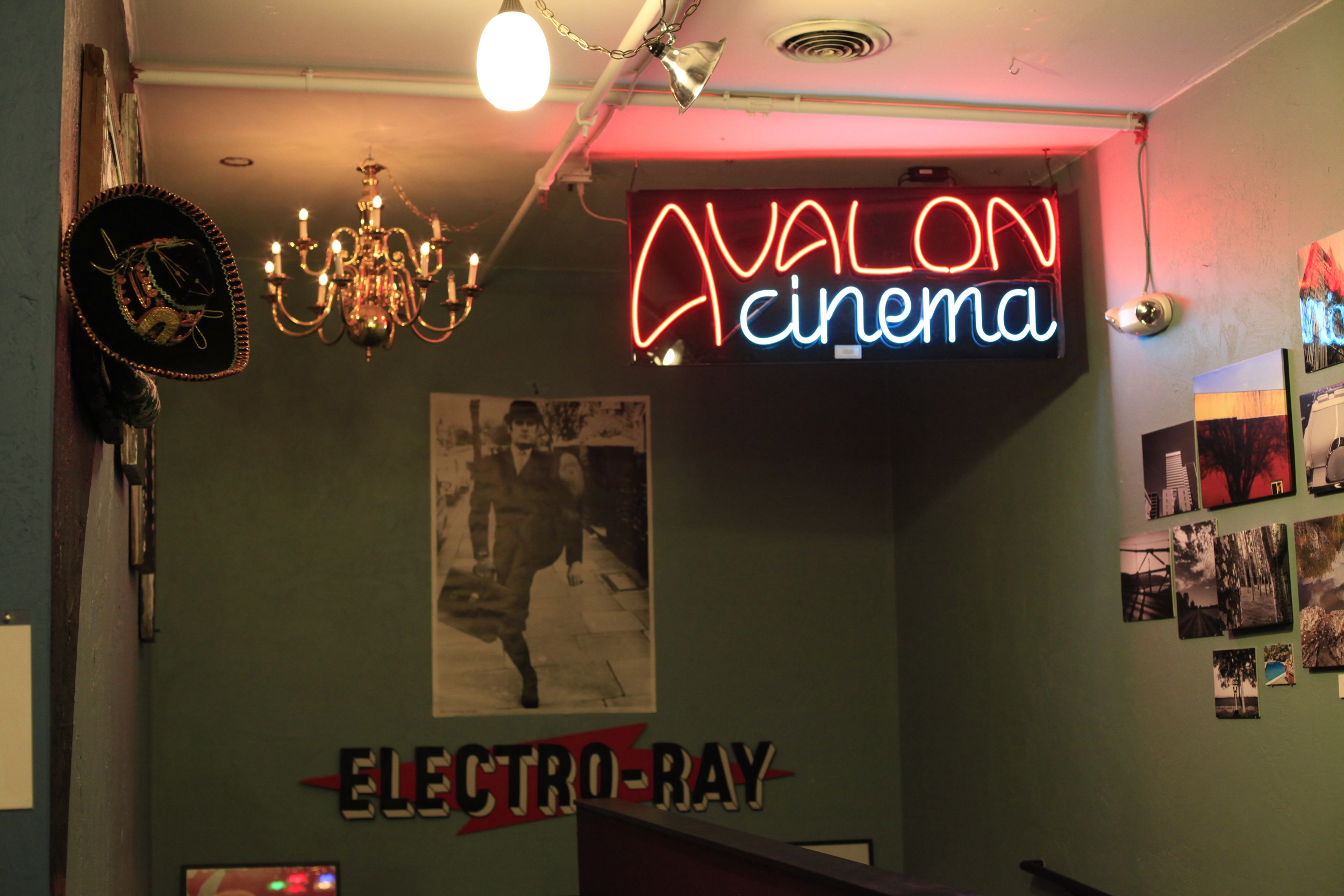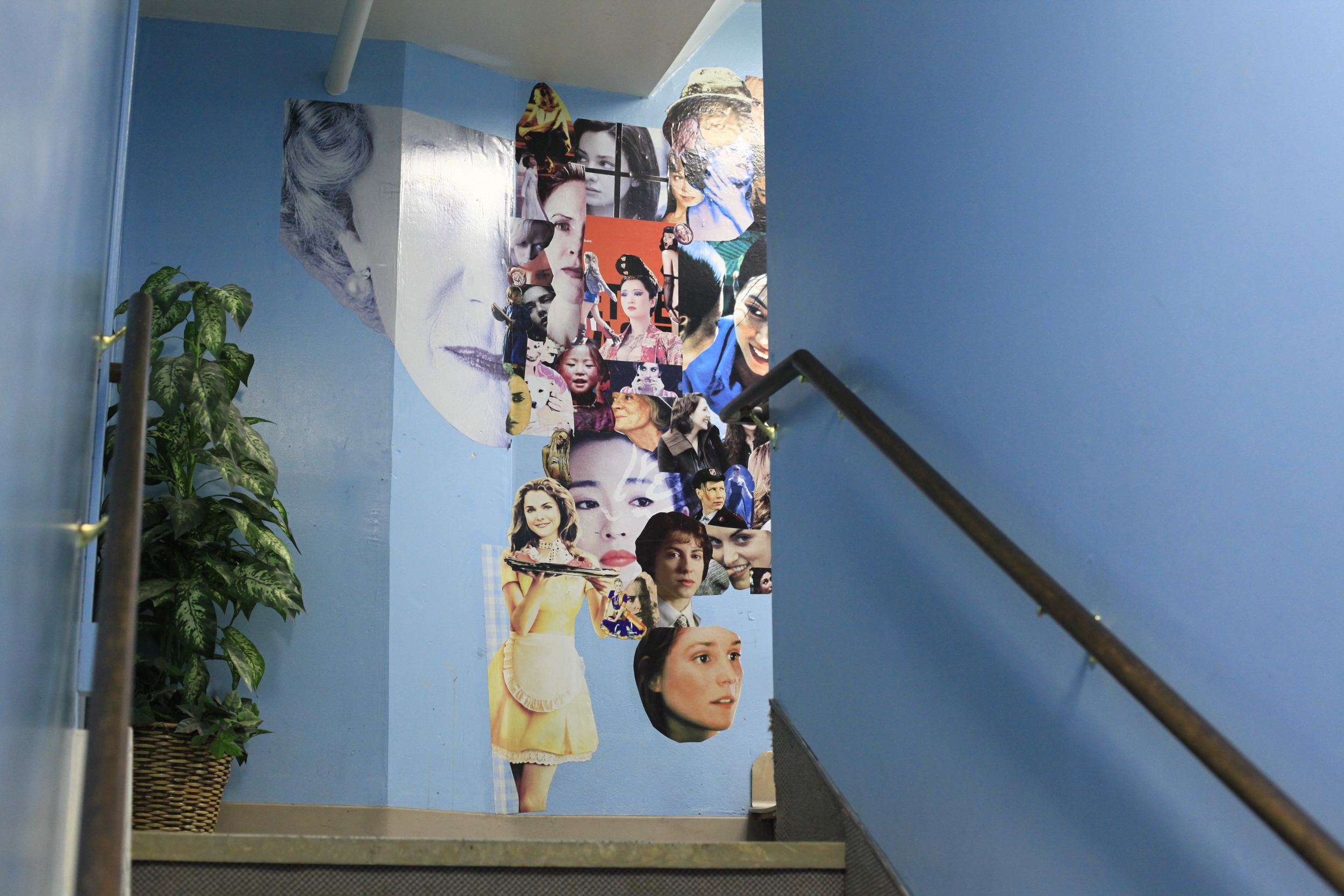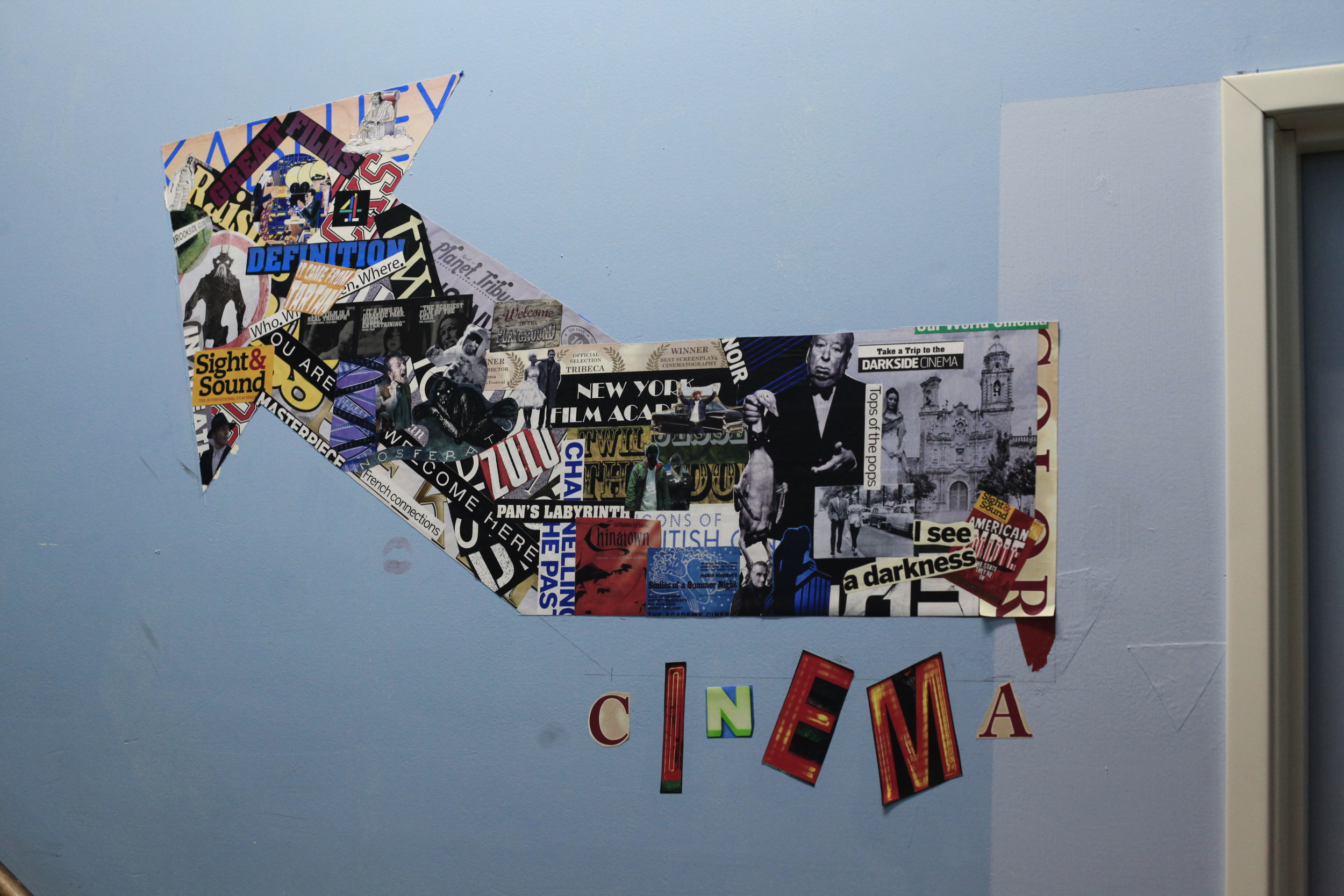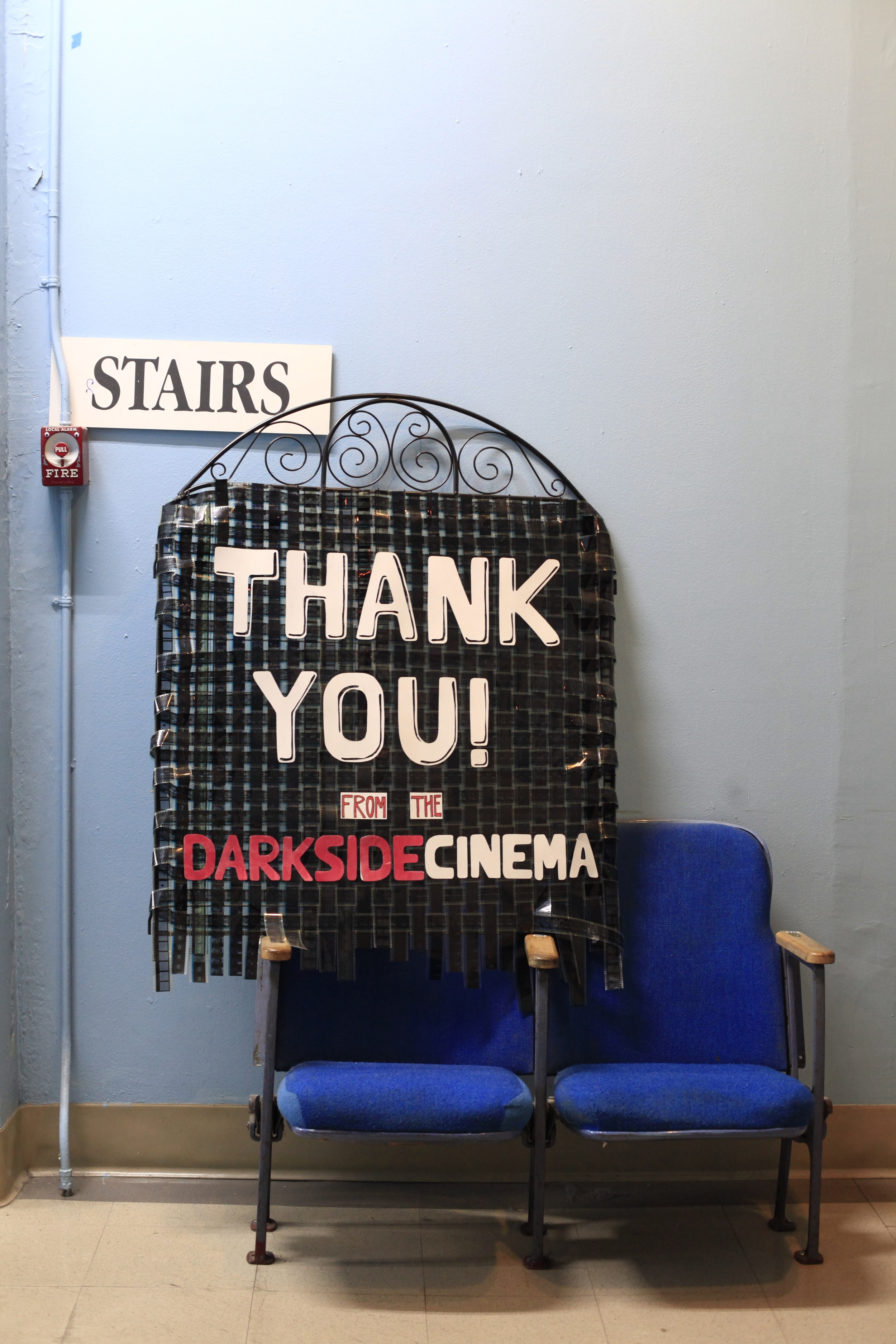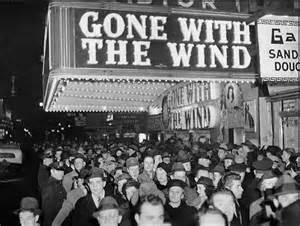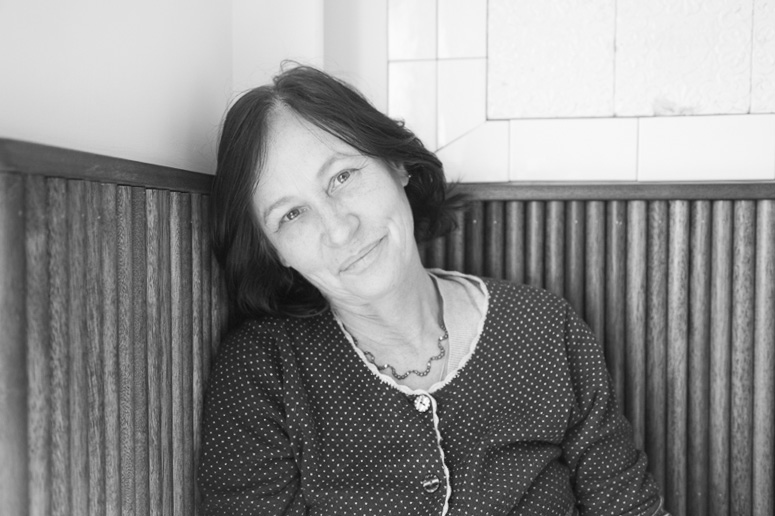Credit writing/photography: Jen G. Pywell
The strip mall effect, a blight for downtowns everywhere, can leave us with a warped and unsettling feeling that where we are could be anywhere. This happens all too often at the supermarket, the coffee shop and even at the movies.
Driving into Corvallis, Oregon down 9th St, we pass strip mall after strip mall, seemingly quarantined to this uninspiring part of town. But soon the speed limit slows to 25mph and majestic trees shade old historic houses. Not so fast, we must pass McDonald’s and Burger King before we reach an actual bustling downtown of independent and locally owned businesses. Mom and Pop shops can and do survive here by the sheer will of a community determined to keep its cultural identity alive.
One such business, Darkside Cinema, has a loyal following that rallied to bring the quirky theater to the “digital age.” Over $50,000 was raised by over 750 backers via Kickstarter in order to purchase a digital projector system. With film obsolete, the business could no longer thrive without undergoing a major update. This state of the art equipment is about all “the Darkside” shares in common with those middle of everywhere megaplexes.
Just getting to our seats at the Darkside is a trip of an experience. The theater’s storefront is unassuming, but as we walk up the stairs plastered with a collage of movie stars’ heads of all sizes, we feel that excited buzz that things are about to get good. As we reach the second floor hallway we are greeted by a gigantic moon mural, a reference to the theater's name, and once inside the lobby our brains are overloaded with funky old movie posters, a vast collection of kitsch, antique theater paraphinalia, velvet paintings, and hand drawn signs. We suddenly feel at home knowing we cannot be anywhere else in the universe other than the Darkside.
That particular evening was community movie night curated by Ygal Kaufmann. “The Smallest Show on Earth” starring Peter Sellers is a 50s black and white slapstick comedy about a couple who inherit a decrepit old theater nicknamed “the flea pit” and struggle to reopen it. The audience was hilariously raucous with lots of talk back to the screen and some very unforgettable laughter. These weekly showings of obscure old films are free to the public and brought to the community by local business sponsors.
Darkside Cinema proprietor Paul Turner was kind enough to keep the doors open late to show us around behind the scenes. Quite a character and institution all his own, Paul was sporting a pretty rad Hawaiian shirt. An overall sense of pride, sarcasm and just plain fun exuded from him. Reading glasses hung around his neck and he put them on and off to inspect the names of old film reels stored in metal boxes, each film box weighing 75lbs. Incontrast, he showed us the sleek and lightweight hard drives that contemporary films are delivered on. Nowadays, movie studios can take up to 90% of the box office sales, a tough pill to swallow as a small business.
For this reason Paul enterprisingly turns to other types of events, like community movie nights, collaborative projects with the university and film festivals to keep the door opens.
One memorable international film festival was featuring a Korean film and the hard drive arrived late. Because of formatting issues with international films, Paul was relieved to find that the hard drive was readable, but soon realized that the menu was in Korean, and he is not fluent in Korean. Without much hope he decided to project the indecipherable menu on the big screen for the audience to see and an elderly Korean woman stood up and helpfully pointed the way through the menus until finally the play button was discovered and the film began.
We could have stayed all night listening to Paul tell us stories about the other small independent theaters he owned in Oregon, including Corvallis’ own Avalon, which preceded the Darkside. He built out both theaters with his own hands and the help of family and friends.
Paul explained that what makes the Darkside unique, aside from the decor and the NC-17 movies, is that “we will treat you like a human. We are glad you are here and will never take you for granted. Everyone is important.”
The longer we chatted like old friends about topics ranging from cameras, soil quality, motorcycles, ex-wives, exercise, and food - the better sense we got that this place was so much more than a business. Darkside Cinema is a unique cultural home for Corvallis, born out of the gumption and passion of one very well loved person and kept alive by the support of the community.
In contribution to Going to the Movies’ oral history collection Paul shared the following montage of memories:
"Two people got married at the Darkside. That and the numerous times people stayed after the shows to talk about the movies. The times where people tell me they could come to the Darkside when they felt there was nowhere else to go when they were depressed, experiencing a loss, upset, etc. because we always treated them the same. Customers who have lost a spouse or partner will often come in and buy two tickets, one for them and one for their departed loved one. We get to watch people fall in love one movie at a time. We get to see people come in with the person they’re cheating with. We get hit on by drunk patrons and I’ve had to physically remove people who were violently drunk. I’ve had people come in and put a stack of bills on the counter because, long ago, I let them in for free because they had no money or I gave them a coat out of the lost and found when they were cold and I said I knew they were sleeping on the streets. I do not remember doing this, but they say I did. I’ve had customers break down when a film reminded them of a loved one long dead. I’ve had Holocaust survivors tell me of their experiences after seeing a movie that hit home. I’ve made the line wait because someone was having a bad day and needed one minute of human contact which manifested in being led to an auditorium. I’ve watched gay couples become more and more comfortable holding hands as the years go by. We turned our heads when a long term customer came in with their dying partner and drank a bottle of wine during a show. I’ve seen the pride in my ex-wife’s eyes when things were going well, and the fear when things went to shit. I’ve been so ill, I was hospitalized. When I came back after a month, the bills had been paid by an anonymous person and my workers kept the doors open for no extra pay. I have felt the loss of every regular who has passed on and the joy of people coming in for the first time with their new baby. I watched my daughter learn to sheetrock a wall because she wanted to be part of the creation of the Avalon Cinema. I sat in the dark of my own auditorium and mourned the loss of my mother. I lost her 15 years ago and I still do that on her birthday. I’ve spent every decade-birthday midnight, in a movie theater starting at 20 years old. I have made this what I do because this is who I am."
